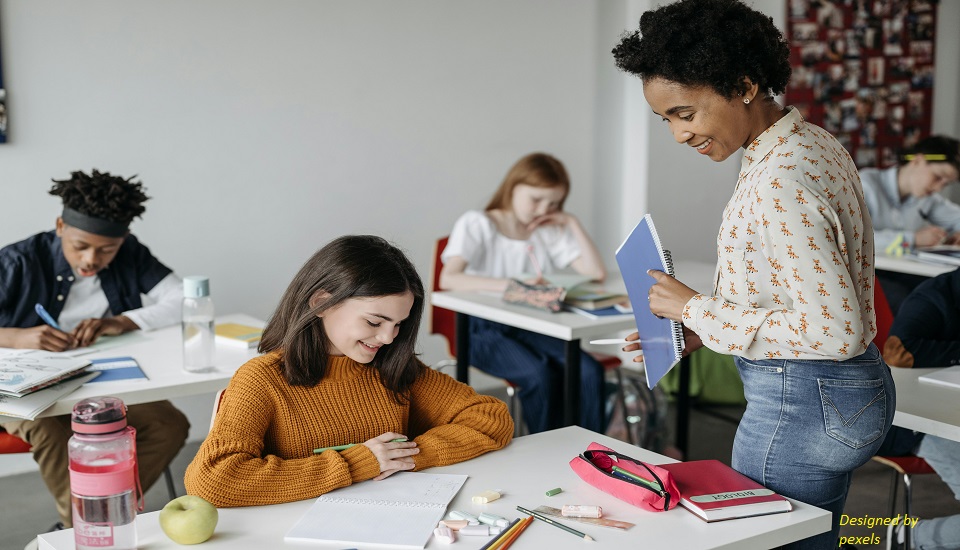Unlocking Student Potential: Essential Resources And Techniques For School Counsellors
6th May 2024
On a daily basis, every student has to deal with academic pressures, social anxiety, and life curveballs. The question arises, as a teacher what you can do, to make their life easier? The answer is quite simple. You can equip yourself with the necessary counselling knowledge which makes a teacher's job as a counsellor easier.
Let’s get to explore some of the best available counselling-related resources that help every teacher to foster open communication to tackle complex challenges for students. These resources will transform your counsellor knowledge toolbox which turns each interaction with students into an opportunity for growth and positive change in their lives.
Before moving to the topic, can we ask you a question? Do you follow us on Social Media? We regularly share upgraded educational content, tips, feedback, and more. Check us out by clicking the profiles here - Facebook / Twitter / LinkedIn / Pinterest / Instagram / YouTube
So, without any further delay, let’s get started.
4 Valuable Resources for School Counsellor
Let’s get to explore some of the best resources that make a teacher's job as a counsellor easier:
CounsellingCoursesofTeachers.com: Counsellingcoursesofteachers.com, is one of the best websites that contain plenty of resources for individuals in any phase of their career, whether they are beginning their career as a teacher counsellor or who are looking for various tools and updated resources in the current phase of their career.
School-Counselor.org: School-counselor.org, provides lots of updated resources related to counselling for teachers, which makes teacher’s lives easier in understanding student’s needs, teaching techniques, and communication techniques with students, etc.
Teacherspayteachers.com: Teacherspayteachrs.com, offers plenty of free resources like- downloadable worksheets and many helpful tools, which teachers around the world have created. It will be helpful, especially for teachers who have taken responsibility for the school counsellor job role.
Confidentcounselors.com: Confidentcounselors.com, contains various helpful downloadable worksheets which will help you to support your students and their families better.
Creative Counselling Techniques That You Must Use
Help to Recognize Negative Thinking Pattern:
Sometimes young learners think the situation is worse than it actually is by overthinking and overanalyzing. The first step is to help them identify and recognize negative thoughts towards any situation.
Turn Negatives into Positives:
Children in the classroom can make plenty of mistakes or be left out by their peers because of being shy. This negative situation can negatively impact students’ self-confidence and self-esteem.
However, as a responsible counsellor teacher, you can suggest those students to think about what advice would they give when their friends or dear ones face similar kinds of situations.
This will help them to deal with negative situations or emotions with the right mindset and positive action.
Ask Open-Ended Questions:
As a responsible counselling teacher, you must show genuine interest in your student's overall well-being. You can ask open-ended questions by having a problem-solving approach to create a collaborative and trustworthy relationship with your students. You can ask questions like-
- Why do you think that happened?
- How does it work?
- What could you change?
Help Them To Achieve Goals:
Most of the time students might get overwhelmed with academic goals that they need to achieve. Encourage them to break down those goals into smaller goals and achieve each one of them at a time.
-Learn, about What is the role of a counsellor in detail, here:
Help Them to Label Their Feelings:
Most of the students feel uncomfortable and have a hard time labelling their emotions. Help them to recognize their every emotion like happiness, anger, and sadness, which helps them to label their feelings. This activity also helps students to recognize the negative emotions and focus on the positive ones.
Become An Active Listener:
Whenever, your young learners want to express or share their thoughts, and feelings then you must listen actively. You can do that by paying attention, matching their body language, and having a non-judgmental approach.
Help Them to Reduce Anxiety & Stress:
Other than sharing and expressing their thoughts or feelings, you should also encourage your students to practice self-care, mindfulness, or even simple breathing exercises to reduce their stress and anxiety levels.
Be Practical:
Lastly, it’s not possible to remove all the stress and anxiety from any student’s life. However, whatever practical techniques you learn from various counselling resources, you can use them to teach students to identify their triggers and provide them guidance to get more control over that particular situation.
For example- If any student feels nervous before their examination, they must practice simple breathing exercises and use positive affirmations like- I am prepared to do well in my exam.
Improve Your Teaching Counselling Skill with Available Resources
One of the best ways to help and guide students in the right direction is by acquiring the knowledge and skills counselling which you can learn by going through all the above-mentioned resources.
If you want to learn more effective counselling techniques and methodologies to support students to thrive in every aspect of life, then consider pursuing courses like Post Graduate Diploma in Counselling for Teachers, where you will get guidance from top expert trainers, who will also make a teacher's job as a counsellor job easier.
Find the right course for you and try out the course. Contact us at 1-213-233-9490. You can also mail us at teacherstraining@asiancollegeofteachers.com.
Written By : Abhishek